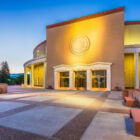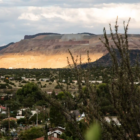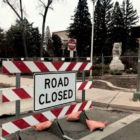The Senate passed a measure Wednesday that would enable New Mexicans for the first time to see how each lawmaker spends public infrastructure money under their control.
Should House members agree with Senate amendments, and Gov. Michelle Lujan Grisham sign it into law, the measure would require legislative staff to automatically publish a list 30 days after the session ends that details how individual lawmakers spend millions of dollars in most years — a far cry from the secrecy that has surrounded such decision making at the Roundhouse for as long as people can remember.
House Bill 55, sponsored by Rep. Matthew McQueen, D-Galisteo, and a bipartisan group of lawmakers, sailed through the Senate after some debate, a much different outcome than in previous years.
In 2015, New Mexico In Depth discovered that such information was a secret after filing a public information request for a list of individual lawmaker’s infrastructure spending allocations and finding out that information wasn’t subject to public scrutiny. That’s because of a long established statute that makes confidential any communication between individual lawmakers and legislative staff. That statute still stands, but now, if the measure becomes law, details about lawmakers’ individual spending choices will be exempt from the rule.
During the February House floor debate on the bill, McQueen said it’s important to make the information readily available to everyone who’s interested. Sen. Jeff Steinborn, D-Las Cruces, said during Wednesday floor debate in the Senate that making the allocations public was long overdue and “fundamentally the right thing to do.” He listed three reasons: it’s public money that the public has the right to see; making it public prevents fraud; and transparency will result in money better spent.
Since 2016 when the first bills were introduced by McQueen and former senator Sander Rue, R-Albuquerque, the transparency measure has been hotly debated, with opposition largely hinging on the political costs to lawmakers if their spending decisions are known to the public. This concern has been voiced largely by rural lawmakers who represent multiple counties, who say they must juggle many more funding requests from their constituents than they can possibly fill.
But a 2019 investigation by New Mexico In Depth found the issue wasn’t a cut-and-dried example of a so-called rural/urban divide.
That year, we asked every lawmaker to give legislative staff permission to share their capital outlay allocations with the public.







